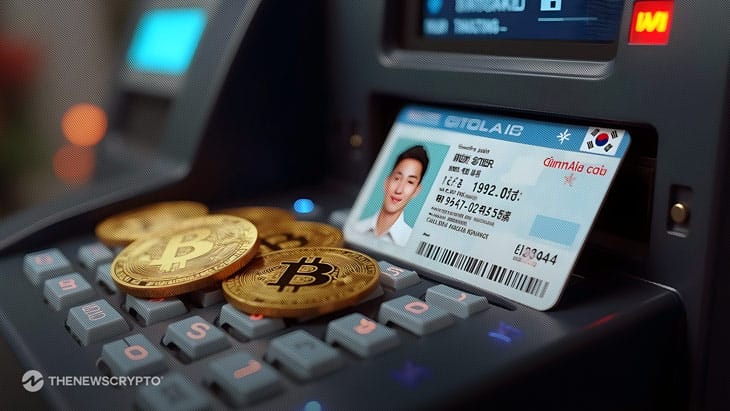South Korea to Enforce Strict KYC Rules for Crypto Sales in June

- To avoid money laundering, the FSC has made the verification process of transaction purposes and sources of funds for non-profits more robust.
- The regulatory body has also planned the revised transaction support best practices for recording zombie coins and memecoins that lead to instability in the digital asset market.
The Financial Services Commission of South Korea will make it compulsory for non-profit organizations and crypto exchanges to comply with a firm customer verification process from June.
The official release of FSC states that these bodies will be permitted to sell virtual assets under new laws. Nonprofits are permitted to sell crypto that they get via donations and sponsorships.
However, exchanges can liquidate user fees paid in crypto. The move comes amid a review of a plan by South Korea to slowly permit corporations to purchase, sell, and hold virtual assets.
The Scrapping Of The Ban
South Korea mentioned at the beginning of 2025 that it is also scrapping the ban on local institutions trading cryptocurrencies. FSC further went on to state that the KYC process will safeguard the South Korean financial market from risks, including money laundering.
The result of this will be a proper use of donated virtual assets, non-profit corporations are restricted to cryptocurrencies backed for trading on three or more Won exchanges. For virtual asset exchanges, crypto for sale is restricted to the top 20 in terms of market capitalization on the KRW exchanges.
To avoid money laundering, the FSC has made the verification process of transaction purposes and sources of funds for non-profits more robust. Adding more to this, it only permits donations via domestic won exchange accounts.
For exchanges, internal control processes like the board of directors’ resolution on digital asset sales plans and prior revealing obligations are also specified, FSC noted.
The regulatory body has also planned the revised transaction support best practices for recording zombie coins and memecoins that lead to instability in the digital asset market. For memecoins, transaction support is only permitted when the number of overall transactions surpasses a specified amount, as per the release.
Highlighted Crypto News Today:
SEC Chair Faces Scrutiny Over Trump Memecoin, Justin Sun Case
Read More

Binance CEO Richard Teng Heads to South Korea as Regulatory Scrutiny Rises
South Korea to Enforce Strict KYC Rules for Crypto Sales in June

- To avoid money laundering, the FSC has made the verification process of transaction purposes and sources of funds for non-profits more robust.
- The regulatory body has also planned the revised transaction support best practices for recording zombie coins and memecoins that lead to instability in the digital asset market.
The Financial Services Commission of South Korea will make it compulsory for non-profit organizations and crypto exchanges to comply with a firm customer verification process from June.
The official release of FSC states that these bodies will be permitted to sell virtual assets under new laws. Nonprofits are permitted to sell crypto that they get via donations and sponsorships.
However, exchanges can liquidate user fees paid in crypto. The move comes amid a review of a plan by South Korea to slowly permit corporations to purchase, sell, and hold virtual assets.
The Scrapping Of The Ban
South Korea mentioned at the beginning of 2025 that it is also scrapping the ban on local institutions trading cryptocurrencies. FSC further went on to state that the KYC process will safeguard the South Korean financial market from risks, including money laundering.
The result of this will be a proper use of donated virtual assets, non-profit corporations are restricted to cryptocurrencies backed for trading on three or more Won exchanges. For virtual asset exchanges, crypto for sale is restricted to the top 20 in terms of market capitalization on the KRW exchanges.
To avoid money laundering, the FSC has made the verification process of transaction purposes and sources of funds for non-profits more robust. Adding more to this, it only permits donations via domestic won exchange accounts.
For exchanges, internal control processes like the board of directors’ resolution on digital asset sales plans and prior revealing obligations are also specified, FSC noted.
The regulatory body has also planned the revised transaction support best practices for recording zombie coins and memecoins that lead to instability in the digital asset market. For memecoins, transaction support is only permitted when the number of overall transactions surpasses a specified amount, as per the release.
Highlighted Crypto News Today:
SEC Chair Faces Scrutiny Over Trump Memecoin, Justin Sun Case
Read More

